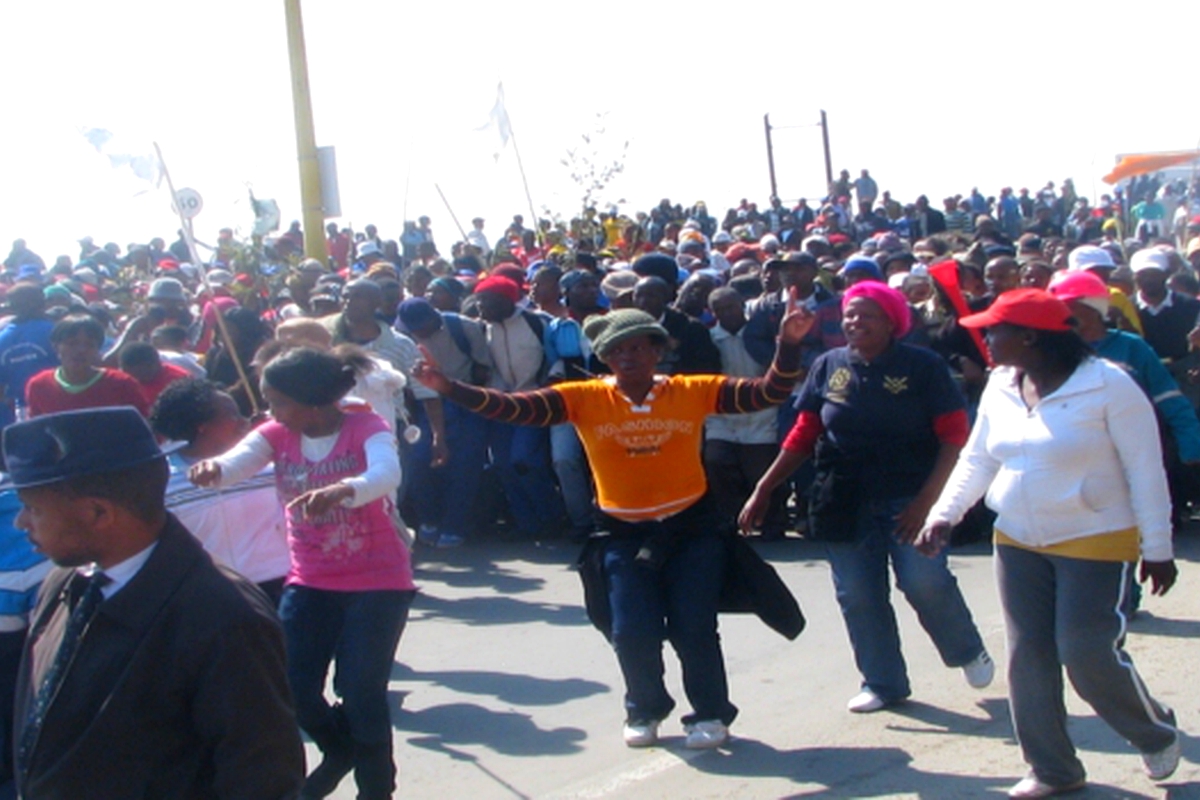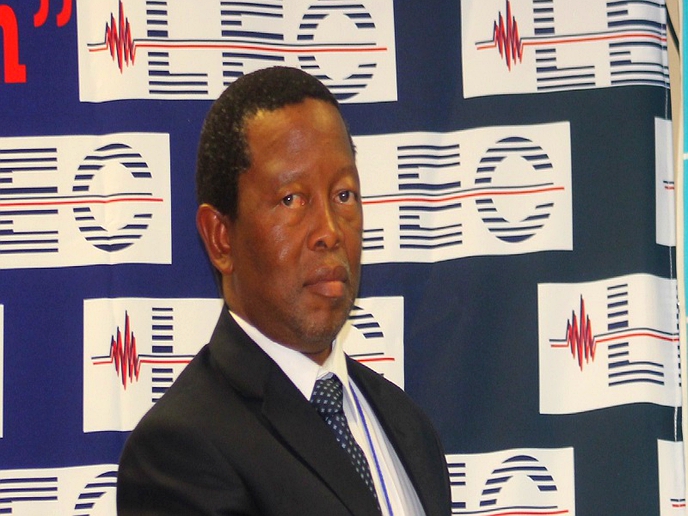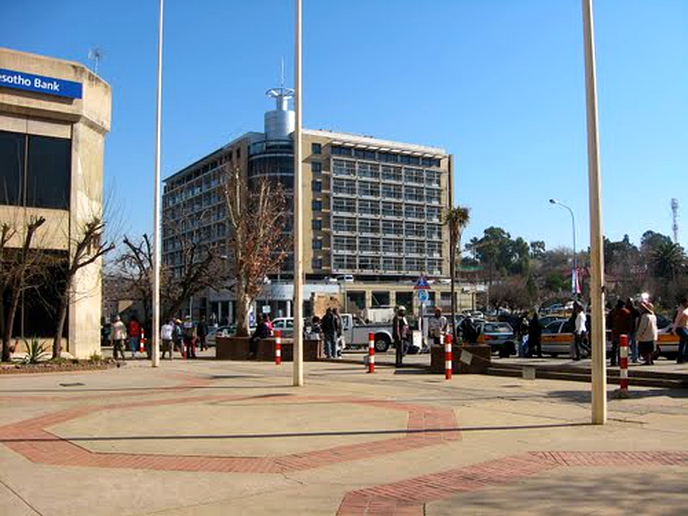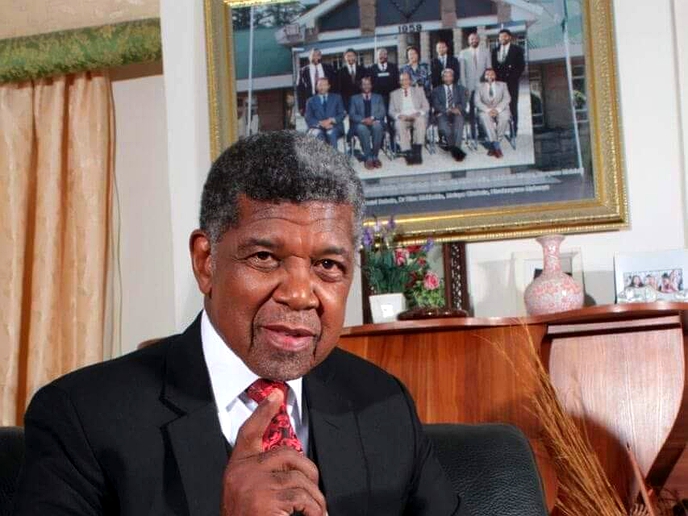The public is expected to voice its opinion on the anticipated setting of new minimum wage for the year 2020. The Labour Code Order of 1992 stipulates that there will be minimum wage set annually across the board and this is, according to labour minister Keketso Rantso, to ensure that general minimum wage applies to any unskilled or manual labourer employed in any commercial or industrial undertaking other than those within the bargaining agreements.
business
March 1, 2020
STAFF REPORTER
4 min read
Government mulls next minimum wage level

Lesotho workers on demonstration
In the press statement issued by the Ministry of Labour and Employment on Friday February 28, members of the public are invited to submit recommendations regarding the new minimum wage for 2020.
The labour law requires the ministry to always produce and publish notice of intention to submit recommendations for minimum wages annually prior to the actual gazetting of the new minimum wage.
The statement said the draft gazette is available in all labour and employment departments throughout the country.
The minimum wage regulation sets the lowest wage that the lowest employee can be paid and it has been defined as the minimum amount of remuneration that an employer is required to pay wage earners for the work performed during a given period, which cannot be reduced by collective agreement or an individual contract.
The purpose of minimum wages is to protect workers against unduly low pay. They help ensure a just and equitable share of the fruits of progress to all, and a minimum living wage to all who are employed and in need of such protection. Minimum wages can also be one element of a policy to overcome poverty and reduce inequality, including those between men and women.
Enjoy our daily newsletter from today
Access exclusive newsletters, along with previews of new media releases.
The current minimum wage in Lesotho is between M1,178 ($102) and M1,285 ($112) per month and it varies by sector. Compared to the Republic of South Africa, which surrounds Lesotho entirely and on which Lesotho depends economically, the minimum wage, effective from March 1 2020 for all employees not within the scope of a bargaining council agreement or sectoral determination are as follows: R20,76 ($1.31) per hour for all employees, except farm- and domestic workers; R18,68 ($1.25) per hour for farm workers; and R15,56 ($1.04) per hour for domestic workers.
Minimum wage has been historically at the centre of workers’ demands for better wages in Lesotho, but a controversial issue locally and internationally as employers are opposed to it. It has been a subject at the ILO since its creation in 1919.
In June 2018 thousands of Lesotho workers protested against a three-month delay in announcing new minimum wages, demanding the mandatory national minimum wage schedules, which provide wage rates for key jobs within sectors and are published annually in the Lesotho Government Gazette in April.
Although workers were demanding a 15 percent increase, which would put minimum wage at M2,200 ($150) while employers were prepared to offer seven percent only, the basis of the demands were on what workers described as disappointingly very low minimum wage – below the living wage.
At the international level, following the universal understanding that the purpose of minimum wages is to protect workers against unduly low pay, minimum wages now exist in more than 90 per cent of the International Labour Organisation's (ILO) member states.
Based on the view that “universal and lasting peace can be established only if it is based upon social justice”, the 1919 ILO Constitution called in its Preamble for an urgent improvement of conditions of labour, including “the provision of an adequate living wage”.
In 1944, the ILO Declaration of Philadelphia referred to the importance of “a minimum living wage to all employed and in need of such protection”. This was reiterated in the 2008 ILO Declaration on Social Justice for a Fair Globalization.
In 1928, the ILO adopted the Minimum Wage Fixing Machinery Convention, 1928 (No. 26) which encouraged member states to implement minimum wages “for workers employed in certain of the trades or parts of trades (and in particular in home working trades) in which no arrangements exist for the effective regulation of wages by collective agreement or otherwise and wages are exceptionally low”. Agriculture was excluded.
However, it is not everyone who subscribes to the idea of setting of fixed minimum wage, Opponents of the minimum wage claim that a fixed minimum wage actually hurts the same low-rung workers it vows to protect. The minimum wage, they say, is an artificial, government-imposed value for an individual worker. The real value of a worker should be decided in the open market.
Opponents of the minimum wage argue that if the factory owner is forced to pay a young worker an artificially high minimum wage, then he will choose not to hire the worker, because it won't make financial sense. So, in this scenario, instead of working for less than minimum wage until he gets more experience, the young worker is now unemployed.
Economists on both sides of the issue hold up study after study proving that the minimum wage either does or doesn't contribute to a rise in unemployment, so that issue remains unresolved.
Another argument against minimum wage is that it contributes to inflation.
They also argue that it excludes low cost competitors from labour markets, hampers firms in reducing wage costs during trade downturns (etc.), generates various industrial-economic inefficiencies as well as unemployment, poverty, and price rises. Hurts small business more than large business.
Tailored for you






